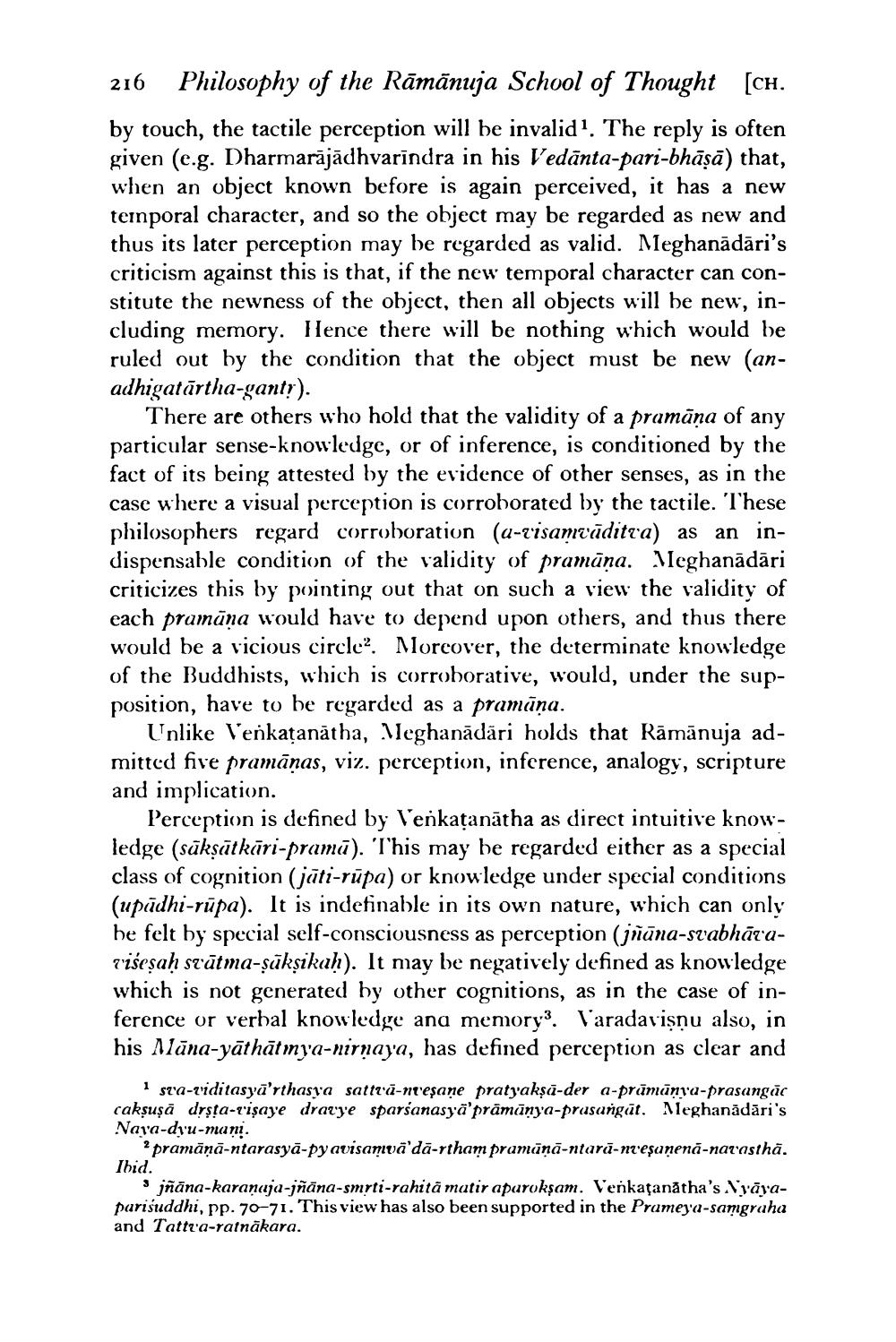________________
216 Philosophy of the Rāmānuja School of Thought [ch. by touch, the tactile perception will be invalid". The reply is often given (e.g. Dharmarājādhvarindra in his l'edānta-pari-bhāṣā) that, when an object known before is again perceived, it has a new teinporal character, and so the object may be regarded as new and thus its later perception may be regarded as valid. Meghanādāri's criticism against this is that, if the new temporal character can constitute the newness of the object, then all objects will be new, including memory. Hence there will be nothing which would be ruled out by the condition that the object must be new (anadhigatārtha-ganty).
There are others who hold that the validity of a pramāņa of any particular sense-knowledge, or of inference, is conditioned by the fact of its being attested by the evidence of other senses, as in the case where a visual perception is corroborated by the tactile. These philosophers regard corroboration (a-visamvāditra) as an indispensable condition of the validity of pramāņa. Veghanādāri criticizes this by pointing out that on such a view the validity of each pramāna would have to depend upon others, and thus there would be a vicious circle?. Moreover, the determinate knowledge of the Buddhists, which is corroborative, would, under the supposition, have to be regarded as a pramūna.
Unlike Venkațanātha, Meghanādāri holds that Rāmānuja admitted five pramānas, viz. perception, inference, analogy, scripture and implication.
Perception is defined by Venkațanātha as direct intuitive knowledge (sākṣātkāri-pramū). This may be regarded either as a special class of cognition (jāti-rūpa) or knowledge under special conditions (upādhi-rūpa). It is indefinable in its own nature, which can only he felt by special self-consciousness as perception (jñāna-svabhāravišesaḥ stūtma-șūkşikah). It may be negatively defined as knowledge which is not generated by other cognitions, as in the case of inference or verbal knowledge ana memory3. Varadavisnu also, in his Mlāna-yāthātmya-nirnaya, has defined perception as clear and
sta-viditasyā'rthasva sattra-nteşane pratyakşā-der a-prumunya-prasangāc cakşuşā drsta-rişaye drażye sparsanasyä'prāmunya-prasangūt. Meghanādāri's Nava-dyu-mani.
? pramāņā-ntarasyā-py avisamvā'dā-rtham pramūnā-ntarā-nt'eșuņena-narasthā. Ibid.
jñāna-karanaja-jñāna-smrti-rahitā matir aparokşam. Venkatanatha's lyāyaparisuddhi, pp. 70–71. This view has also been supported in the Prameya-samgraha and Tattra-ratnākara.




